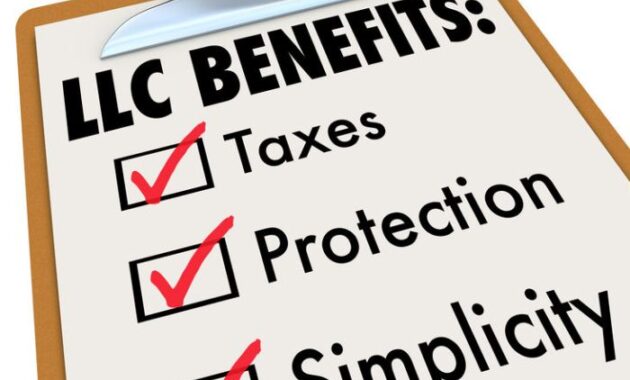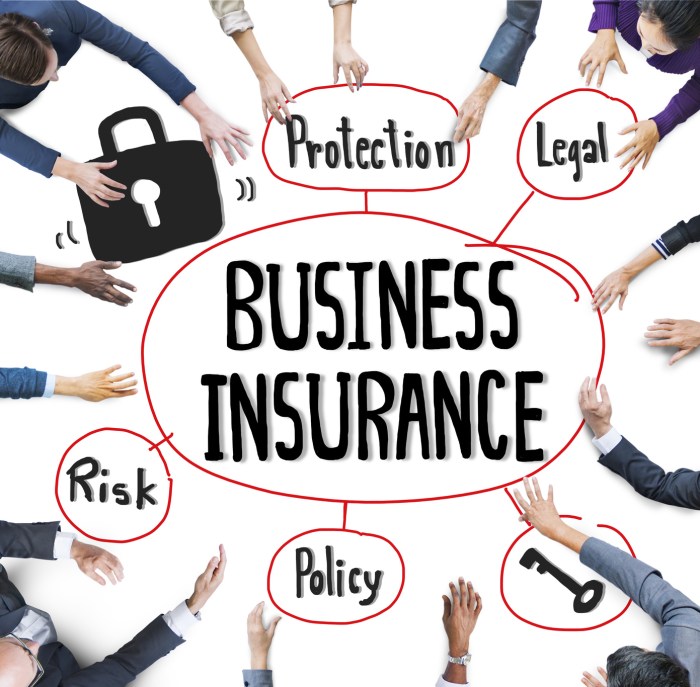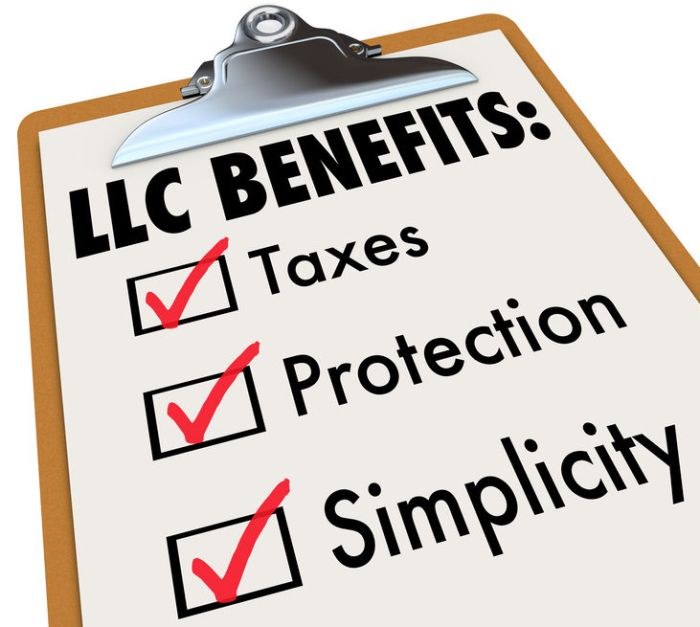
Navigating the complexities of running a small business often leaves entrepreneurs grappling with numerous challenges. One crucial aspect that frequently gets overlooked, yet holds immense importance, is securing the right insurance coverage. This comprehensive guide delves into the world of LLC insurance for small businesses, providing a clear understanding of the various policy types, cost factors, and selection processes to help you protect your hard-earned investment and peace of mind.
From understanding the diverse range of insurance policies available to effectively managing risk and choosing the right provider, this resource equips you with the knowledge necessary to make informed decisions. We will explore real-world scenarios to illustrate the significance of adequate insurance coverage, highlighting the potential financial repercussions of inadequate protection and the advantages of proactive risk management.
Types of LLC Insurance for Small Businesses
Protecting your small business, structured as a Limited Liability Company (LLC), requires a strategic approach to insurance. While the LLC structure offers some liability protection, it doesn’t eliminate all risks. Appropriate insurance coverage is crucial for mitigating financial losses and ensuring the long-term viability of your business. This section details common insurance types beneficial for small LLCs.
General Liability Insurance
General liability insurance protects your business from financial losses resulting from third-party claims of bodily injury or property damage caused by your business operations. This coverage is essential for most businesses, regardless of size or industry. For example, if a customer slips and falls on your premises, general liability insurance would cover medical expenses and potential legal costs associated with the incident. It also often includes product liability coverage, protecting you if a customer is injured by your product.
Professional Liability Insurance (Errors and Omissions Insurance)
Professional liability insurance, also known as errors and omissions (E&O) insurance, protects professionals from claims of negligence or mistakes in their professional services. This is particularly important for businesses offering consulting, design, or other professional services. For instance, if a consultant provides incorrect advice that results in financial losses for a client, E&O insurance can cover the resulting legal fees and settlements.
Commercial Auto Insurance
If your business uses vehicles, commercial auto insurance is a necessity. This policy covers accidents or damage involving your company vehicles, regardless of who is at fault. This includes coverage for property damage, medical expenses, and legal liabilities. For example, if an employee is involved in a car accident while conducting business, commercial auto insurance will cover the resulting costs. It’s crucial to distinguish this from personal auto insurance, which won’t cover business-related accidents.
Workers’ Compensation Insurance
If you employ others, workers’ compensation insurance is mandatory in most states. This insurance covers medical expenses and lost wages for employees injured on the job. It also protects your business from lawsuits related to workplace injuries. For example, if an employee suffers a workplace injury, workers’ compensation will cover their medical bills and lost wages, preventing a potential costly lawsuit against your business.
Commercial Property Insurance
Commercial property insurance protects your business property from damage or loss due to various events, such as fire, theft, or vandalism. This includes coverage for your building, equipment, inventory, and other business assets. If a fire destroys your office, commercial property insurance will cover the cost of rebuilding or replacing your damaged property.
Cyber Liability Insurance
In today’s digital age, cyber liability insurance is becoming increasingly important for businesses of all sizes. This coverage protects your business from financial losses resulting from data breaches, cyberattacks, or other cybersecurity incidents. For example, if a hacker steals your customer data, cyber liability insurance can cover the costs of notifying affected individuals, credit monitoring services, and legal fees.
| Policy Type | Coverage Features | Example Scenario | Premium & Limits (Example) |
|---|---|---|---|
| General Liability | Bodily injury, property damage, product liability | Customer slips and falls in your store | $500-$1500 annually; $1M-$2M coverage |
| Professional Liability | Negligence, errors in professional services | Consultant gives incorrect financial advice | $500-$2000 annually; $1M-$2M coverage |
| Commercial Auto | Accidents involving company vehicles | Employee crashes company car | $1000-$3000 annually; Varies by coverage |
| Workers’ Compensation | Workplace injuries to employees | Employee injured on the job | Varies by state and payroll; Varies by coverage |
Factors Affecting LLC Insurance Costs
Securing the right insurance coverage is crucial for any small business, but understanding the factors that influence the cost of that coverage is equally important for effective budgeting and financial planning. Several key elements contribute to the overall premium, and recognizing these factors allows business owners to make informed decisions about their insurance needs and potential expenses.
Industry and Risk Profile
The nature of your business significantly impacts insurance costs. High-risk industries, such as construction or manufacturing, generally face higher premiums due to the increased likelihood of accidents, injuries, or property damage. Conversely, businesses in lower-risk sectors, like administrative services, may qualify for lower premiums. Insurance companies assess the inherent risk associated with specific industries through detailed risk assessments, considering factors like the use of hazardous materials, the potential for employee injuries, and the likelihood of property damage or liability claims. For example, a construction company will likely pay considerably more for general liability insurance than a consulting firm due to the inherent dangers associated with construction work.
Location and Geographic Factors
The geographic location of your business also plays a significant role in determining insurance costs. Areas with higher crime rates, natural disaster risks (earthquakes, hurricanes, floods), or a higher frequency of accidents will generally have higher premiums. Insurance companies analyze historical claims data for specific regions to assess the level of risk and adjust premiums accordingly. A business located in a high-crime area might face higher premiums for property insurance than a similar business in a safer neighborhood. Similarly, a business situated in a hurricane-prone zone will pay more for property and business interruption insurance than a business in a less vulnerable location.
Number of Employees
The number of employees directly affects the cost of workers’ compensation insurance, a crucial coverage for businesses with employees. More employees translate to a higher risk of workplace accidents and injuries, leading to increased premiums. Insurance companies use statistical models that consider the number of employees, their job classifications, and the historical claims data for similar businesses to determine the appropriate premium. A business with 10 employees will generally pay a higher workers’ compensation premium than a business with only two.
Risk Assessment and Claims History
Insurance companies conduct thorough risk assessments to evaluate the potential for claims. This assessment involves reviewing various factors, including the safety measures implemented by the business, the training provided to employees, and the business’s claims history. A business with a strong safety record and a history of few or no claims will generally qualify for lower premiums. Conversely, a business with a history of frequent claims or inadequate safety measures will likely face higher premiums. For example, a business that invests in comprehensive safety training and regularly inspects its equipment will likely receive a lower premium than a business with a poor safety record.
Hypothetical Scenario: Comparing Insurance Costs
Consider two hypothetical small businesses: “Handy Helpers,” a home repair company with five employees located in a high-crime, flood-prone area, and “Tech Solutions,” a software development firm with two employees located in a safe, low-risk area. Handy Helpers, operating in a high-risk environment with more employees, will likely face significantly higher premiums for general liability, workers’ compensation, and property insurance compared to Tech Solutions. The increased risk associated with the nature of their work, location, and employee count will all contribute to higher overall insurance costs.
Choosing the Right Insurance Provider

Selecting the right insurance provider for your small business LLC is crucial. The right provider will offer comprehensive coverage at a competitive price, backed by excellent customer service and a strong reputation. A poor choice can leave your business vulnerable and financially exposed. Therefore, careful consideration of various factors is paramount.
Finding a reputable and reliable insurance provider involves comparing multiple options and evaluating their offerings based on your specific needs. Different providers specialize in various aspects of small business insurance, offering varying levels of coverage, customer support, and pricing structures. Understanding these differences is key to making an informed decision.
Comparing Insurance Providers
Many insurance providers cater to small businesses, each with its strengths and weaknesses. Some may specialize in specific industries, offering tailored policies and expertise in those sectors. Others may focus on broader coverage, providing a more general approach. Direct insurers, such as those selling policies directly to consumers online or through call centers, often offer competitive pricing but may lack the personalized service of a local independent agent. Independent insurance agents, on the other hand, represent multiple insurance companies, allowing them to shop around for the best policy for your needs. This comparison process can reveal significant differences in premiums and coverage options for the same level of risk. For example, one provider might offer lower premiums for general liability but higher rates for professional liability compared to another.
Finding Reputable Providers
Several resources help identify reputable insurance providers. Checking online reviews and ratings from sites like the Better Business Bureau (BBB) can provide insights into customer experiences. Seeking recommendations from other small business owners, particularly those in similar industries, can offer valuable firsthand perspectives. Confirming that a provider is licensed and authorized to operate in your state is crucial, as it ensures compliance with regulatory requirements. Finally, verify the financial stability of the provider by checking their ratings from independent agencies like A.M. Best, which assesses the financial strength of insurance companies. A financially stable provider is less likely to default on claims.
Importance of Reading Policy Details
Before committing to a policy, meticulously reviewing the policy details is paramount. Understanding the specific coverage provided, exclusions, and limitations is vital. Pay close attention to the policy’s definitions of key terms, such as “occurrence” or “accident,” to avoid misunderstandings later. Carefully examine the claims process Artikeld in the policy, including the steps involved in filing a claim and the documentation required. Furthermore, clarify any ambiguities or uncertainties directly with the provider before signing the contract. Overlooking crucial details in the policy can lead to significant financial losses in the event of a claim. For instance, a seemingly minor exclusion could invalidate your claim if a covered incident falls under that exclusion.
Criteria for Selecting an Insurance Provider
Choosing the right insurance provider requires careful consideration of several key factors. It’s essential to prioritize factors that align with your business’s specific needs and risk profile.
- Coverage Options: Ensure the provider offers comprehensive coverage tailored to your business type and risk profile.
- Pricing and Premiums: Compare quotes from multiple providers to find competitive pricing without sacrificing coverage.
- Financial Stability: Verify the provider’s financial strength through independent ratings agencies.
- Customer Service: Assess the provider’s responsiveness, accessibility, and helpfulness in addressing your queries and concerns.
- Claims Process: Understand the claims process thoroughly, including the required documentation and timelines.
- Reputation and Reviews: Check online reviews and ratings from reputable sources.
- Policy Transparency: Ensure the policy language is clear, concise, and easily understandable.
The Role of Insurance in Business Risk Management
Insurance plays a crucial role in mitigating the various financial risks inherent in operating a small business. From unexpected lawsuits to property damage, the potential for unforeseen events that can severely impact a company’s bottom line is substantial. A well-structured insurance plan acts as a safety net, allowing businesses to recover from setbacks and continue operations without facing crippling financial losses.
Insurance helps mitigate various risks by transferring the financial burden of potential losses to an insurance company. This transfer allows business owners to focus on their core operations, knowing that they have protection against a wide range of potential problems. The peace of mind provided by insurance is invaluable, allowing for strategic planning and growth without the constant worry of catastrophic financial events.
Comprehensive Risk Assessment Before Purchasing Insurance
Before acquiring any insurance policy, conducting a thorough risk assessment is paramount. This involves identifying all potential risks faced by the business, evaluating the likelihood of each risk occurring, and assessing the potential financial impact of each risk. This assessment helps determine the types and amounts of insurance coverage needed to adequately protect the business. For example, a bakery might assess risks such as fire damage to equipment, food spoilage, liability for customer injuries, and employee accidents. This assessment will then inform the choice of property, liability, and workers’ compensation insurance, and the appropriate coverage limits for each. Ignoring this crucial step can lead to inadequate insurance coverage, leaving the business vulnerable to significant financial losses.
Consequences of Inadequate Insurance Coverage
Inadequate insurance coverage can lead to severe financial consequences for small businesses. In the event of a covered loss, insufficient coverage means the business will bear a significant portion of the costs itself, potentially leading to financial instability or even bankruptcy. For instance, a small restaurant with insufficient liability insurance might face financial ruin if a customer suffers a serious injury due to food poisoning and sues the establishment. Similarly, insufficient property insurance could leave a business struggling to rebuild after a fire. The impact extends beyond direct financial losses; it can also damage the business’s reputation and hinder its ability to secure future funding.
Benefits of Bundling Insurance Policies
Bundling insurance policies, such as combining property, liability, and business interruption insurance with a single provider, often leads to cost savings. Insurance companies frequently offer discounts for purchasing multiple policies together. This bundling not only simplifies administration but also streamlines the claims process, making it easier for businesses to manage their insurance needs effectively. For example, a small retail store might find significant cost savings by bundling its general liability, commercial property, and workers’ compensation insurance through a single provider, instead of purchasing each policy separately from different companies. This strategy improves efficiency and reduces overall insurance expenses.
Illustrative Scenarios

Understanding the practical application of LLC insurance is crucial. The following scenarios highlight the benefits of adequate coverage and the potential consequences of insufficient protection. These examples illustrate how insurance can safeguard your business from significant financial losses.
Successful Liability Claim Recovery
Imagine Sarah, owner of “Sarah’s Sweet Treats,” a small bakery. A customer slips on a wet floor in her shop, injuring their ankle. The customer sues Sarah’s Sweet Treats for medical expenses and pain and suffering. Fortunately, Sarah has a comprehensive general liability insurance policy with a sufficient coverage limit. Her insurance company investigates the claim, defends her in court, and covers the customer’s medical bills and a settlement amount, preventing Sarah from facing significant personal financial ruin. The insurance company’s legal team handled all aspects of the lawsuit, minimizing Sarah’s stress and allowing her to focus on running her business. The entire process, while stressful, did not result in a catastrophic financial impact on her business thanks to adequate insurance.
Financial Consequences of Insufficient Coverage
Consider Mark, owner of “Mark’s Mobile Mechanics,” a mobile auto repair service. He opts for minimal liability insurance due to cost concerns. During a repair, a customer’s car catches fire due to a faulty part. The customer suffers severe burns and sues Mark for substantial damages. Mark’s insurance policy has a low coverage limit, insufficient to cover the extensive medical bills and legal fees. Consequently, Mark faces a substantial personal financial burden, potentially leading to bankruptcy. He is forced to sell personal assets to cover the remaining costs of the lawsuit, significantly impacting his personal life and potentially closing his business. This scenario highlights the devastating consequences of underestimating the need for comprehensive insurance coverage.
Benefits of Proactive Risk Management and Insurance Planning
David, owner of “David’s Design Studio,” a graphic design firm, proactively assesses potential risks in his business. He identifies potential liability issues related to copyright infringement and data breaches. He consults with an insurance broker to develop a comprehensive insurance plan that includes professional liability insurance (errors and omissions) and cyber liability insurance. This proactive approach ensures that David is protected against potential lawsuits or financial losses stemming from these identified risks. His planned approach allows him to focus on growing his business without the constant worry of unexpected financial setbacks. The relatively small premium cost for these policies pales in comparison to the potential financial devastation a lawsuit could bring. His proactive risk management strategy has not only protected his business but also provided him with peace of mind.
Closing Summary

Protecting your LLC requires a proactive and informed approach to insurance. By understanding the various types of insurance available, the factors influencing costs, and the importance of choosing a reputable provider, you can significantly mitigate risks and safeguard your business’s future. Remember, comprehensive insurance isn’t just about compliance; it’s about securing your financial stability and enabling your business to thrive in the face of unforeseen circumstances. Invest in your peace of mind – invest in the right LLC insurance.
FAQ Guide
What is the difference between general liability and professional liability insurance?
General liability covers bodily injury or property damage caused by your business operations. Professional liability (Errors & Omissions) protects against claims of negligence or mistakes in professional services.
How often should I review my LLC insurance policies?
It’s recommended to review your policies annually, or whenever significant changes occur in your business (e.g., expansion, new employees, change in operations).
Can I bundle different types of insurance policies for cost savings?
Yes, many insurance providers offer discounts for bundling multiple policies, such as general liability, professional liability, and commercial auto insurance.
What documents do I need to file an insurance claim?
Typically, you’ll need the policy details, a detailed description of the incident, police reports (if applicable), medical records (if applicable), and any relevant correspondence.
What happens if I don’t have adequate insurance coverage and a significant claim arises?
Without sufficient coverage, you could face substantial financial losses, potentially leading to business closure or personal bankruptcy. Your assets could be at risk to satisfy legal judgments.